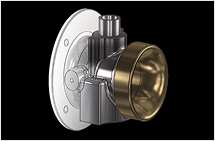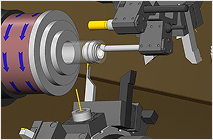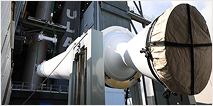Achates Power in San Diego, California, uses Mastercam to create prototype parts for an eco-friendly, gasoline compression ignition, opposed-piston engine. The collaborative research was the work of Achates, Argonne National Laboratory, and Delphi Technologies. It was produced using funding from the U.S. Department of Energy’s ARPA-E program.
Quick Facts
- Product Used: Mill, Port Expert, Dynamic Milling
- Industry: Transportation
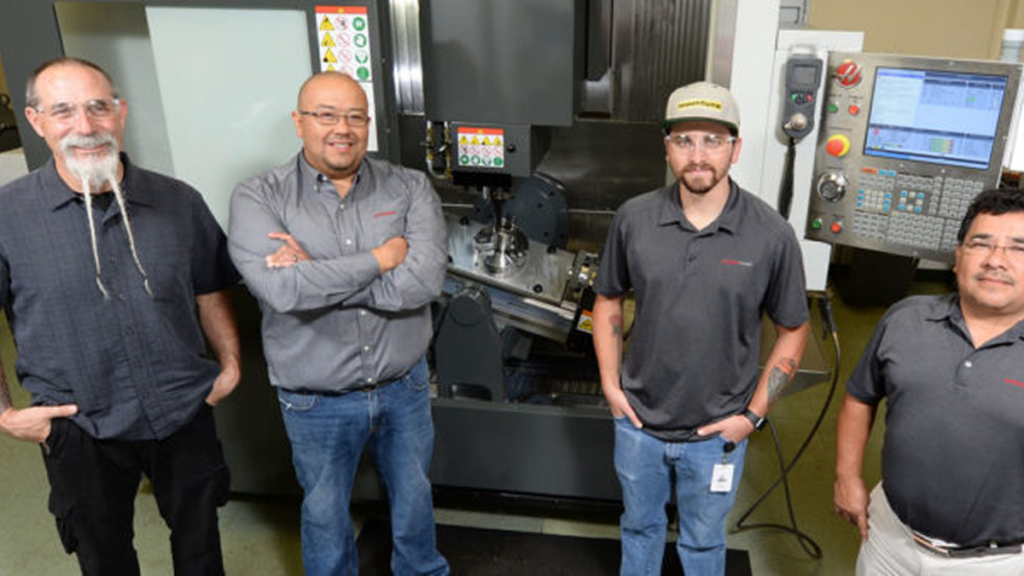
Project Details
- The Challenge: Machine prototype parts that mimic the performance of production-ready steel using billet rather than casting them. Undercuts and cavities are difficult to cut on two-piece piston assemblies.
- The Solution: Mill, Port Expert, Dynamic Milling
- Benefits
- Port Expert Add-On for engine cylinder head porting toolpaths on port surfaces or solid data. Uses lollipops and performs collision checks during programming.
- 5-axis Dynamic Milling toolpaths for complex geometries and roughing: multiaxis flowline, swarf milling, and rotary toolpaths.
- Verify function allows programmers to confirm toolpaths prior to machining so they can program toolpaths and have them ready when the prior job is finished.
One engine stood out at the 2018 North American International Auto Show in Detroit, Michigan: the new eco-friendly, gasoline compression ignition, opposed-piston engine from Achates Power in San Diego, California. The collaborative research was the work of Achates, Argonne National Laboratory, and Delphi Technologies. It was produced using funding from the U.S. Department of Energy’s ARPA-E program. The revolutionary design results in an engine which requires no cylinder heads, reducing heat loss and increasing efficiency. Achates, a design company that licenses the technology, is currently prototyping the green engine’s parts.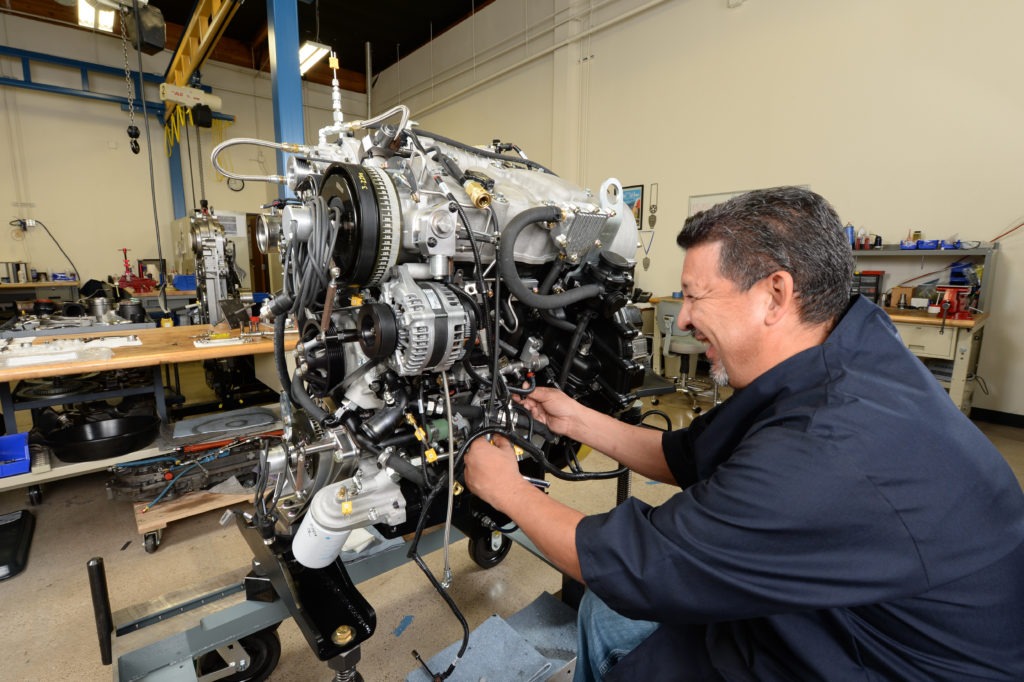
The production pistons will be two-piece components that are cast and then welded together. Their prototypes are machined using Mastercam. Sergio Ramirez, shop manager at Achates, explained that casting prototypes is inefficient; each prototype piston is tested thoroughly, and then the design is slightly modified. With so many small design changes, casting prototypes is simply cost-prohibitive. Unfortunately, rapid prototyping material will not stand up to the heating and cooling cycles associated with this process, so Ramirez uses 4140 and 4340 steel billet.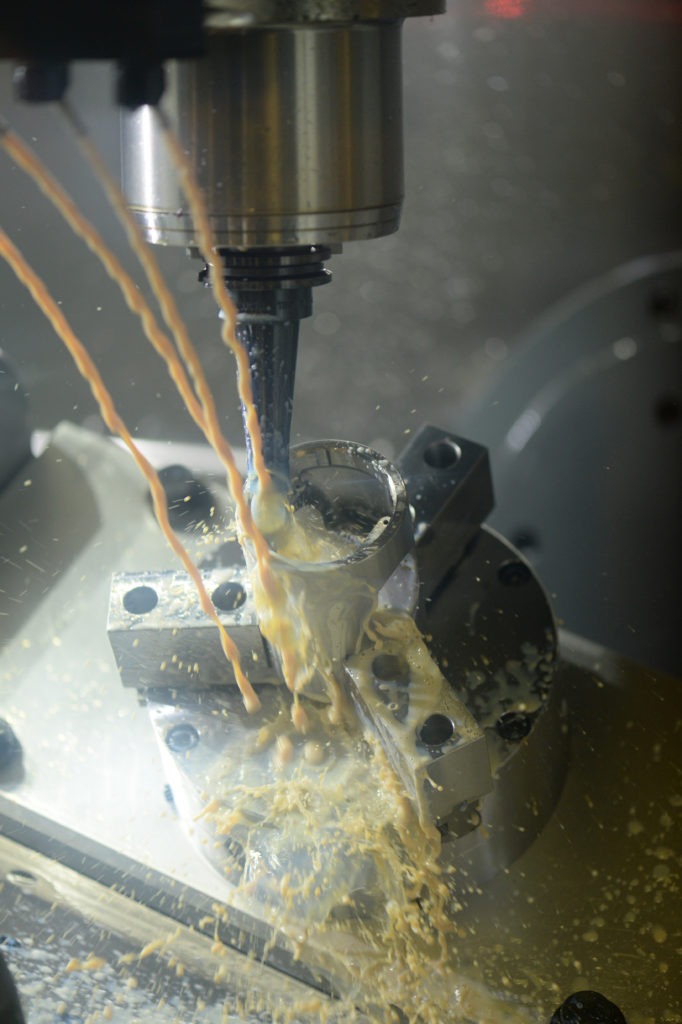
“Machining this assembly has been the biggest challenge because of the deep cavities and radii in the corners; small cutting tools just don’t like it. And, any time you weld two pieces together, there is the possibility of a failure mode. You don’t want the piston to break apart during machining, let alone in an engine. But we’ve surpassed it, and we haven’t had any failures. That was probably the biggest climb we had to take—to try to mimic the performance of a production-ready steel piston using billet,” said Ramirez.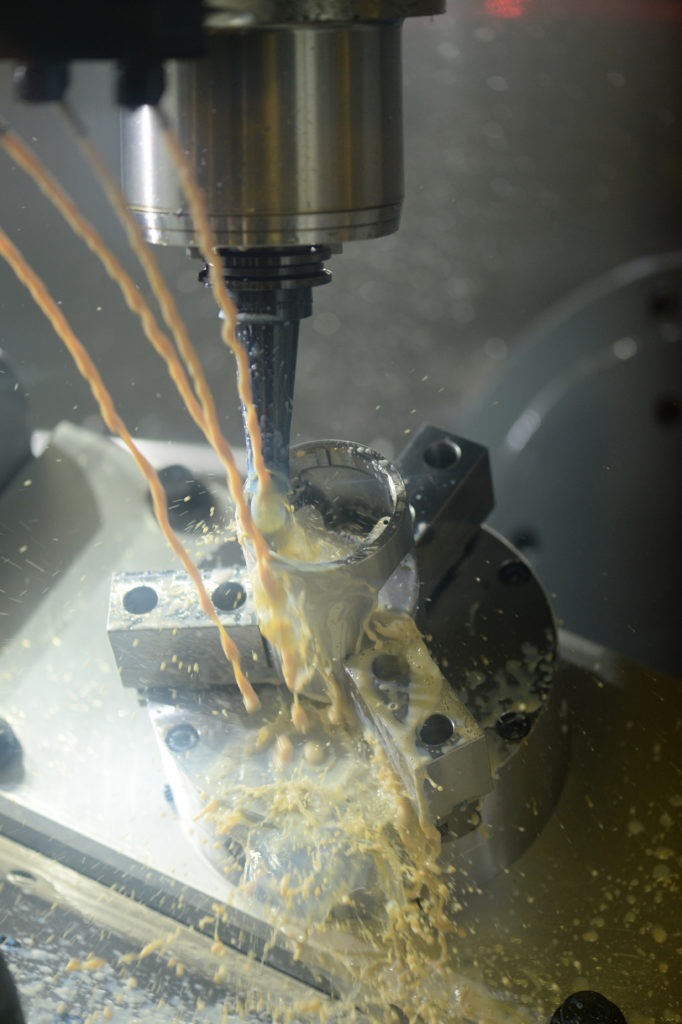
Machining undercuts and cavities in the two-part pistons is more difficult than casting them. Once welded, the underside of the crown is difficult to reach. Trevor Bailey, technical support specialist at San Diego CAD/CAM sat down with Ramirez to find a solution. Together, they redesigned the process so that the two pieces were not welded together until the crown’s undercuts were made. Then came the delicate machining.
Once the piston crown is welded to the bottom piece, machining the internal cavities is a matter of precision. At Bailey’s suggestion, Ramirez decided to use Port Expert, a Mastercam add-on that uses collision checks during machining to avoid tool and material damage.
“Port Expert allows us to tilt more in a tangent cutting toolpath along the surface. We just have more vectoring control of the tool and are able to utilize the optimum cutting flute surfaces on the lollipop endmills,” said Ramirez.
Ramirez fully expects the new engine to begin on-road testing this year. “By the end of 2019,” he said, “we’ll have thousands of test hours and miles on that engine.” The licenses to manufacture will then be sold to manufacturers for production.
Achates’ opposed-piston engine is estimated to cost $1,000 less than comparable diesel engines and will be shockingly efficient for a full-size pickup truck engine, at 37 miles per gallon. Consumers can look forward to an engine that is environmentally and wallet-friendly.


